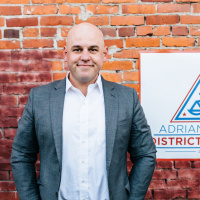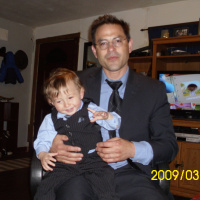
Johnny C. asks Adrian Kamada, Stacey Eads, Michael Acosta…
Elected DA Caseload
Would-be DAs: By the standards of the state, the Humboldt County DA’s Office is pretty small. In many small offices, the elected DA personally tries cases in front of juries. This serves three important purposes: First, as Marshall McLuhan noted, the medium is often the message. When the elected DA walks in to personally try a case, the community and the courts are put on notice that the case is inherently important. Second, it demonstrates leadership and personal accountability by the elected DA, since there is no room to blame the outcome on an underling. In other words, it is the most visible reminder that the buck stops on the DA’s desk. Third, it helps relieve the caseload of the deputies in the office - a chronic problem in perpetually understaffed rural offices with high turnover and relatively inexperienced attorneys who are often assigned to handle complex and serious cases. Despite this, the current DA does not personally try cases. If you are elected, do you plan to carry a trial caseload? If so, what sort of cases do you plan to personally try? If not, how will you address each of the issues described above? Thanks, Johnny
— Johnny C.
Responses

Adrian Kamada
Johnny,
I agree that when the elected District Attorney personally tries cases it sends a necessary signal to the community that the case in question is of particular importance or weighs heavily within the community. I have consistently messaged that point throughout my campaign. For example, in the case of the killing of Josiah David Lawson I have stated that a true leader would take that case personally to demonstrate the case’s importance within the community, and clearly communicate with the victim’s family and friends. Indeed, this was one of the reasons the Times-Standard cited in endorsing me for District Attorney. https://www.times-standard.com/2022/04/10/times-standard-endorses-adrian-kamada-for-da/
I also agree with your second point—personally handling certain cases demonstrates that the buck stops with the D.A., and there will be no scapegoating. My view is that the D.A. must be responsible for their decisions, the outcome of cases, and should not blame victims, law enforcement, the court, or the jury when the outcomes are unsatisfactory. If a case presents challenges, the D.A. must be willing to work to overcome those challenges before the case goes too far into the criminal justice process. That is the job, and what the people pay you to do: make tough decisions and be accountable for those decisions.
Regarding your third point, the D.A must have a strategy when turnover occurs, and cases must be assigned to another Deputy D.A. There is no question that constant turnover hurts the efficiency of cases moving through the system. The strategy I will implement in assigning cases will consider various factors in assigning cases, including, but not limited to, the prosecutors’ demonstrated ability, the likelihood of having to reassign the case, and the nature and level of complexity in the case.
As D.A. I will build relationships with employees through establishing an office environment that allows them to speak freely without fear of retaliation. I will install an office culture that places an emphasis on the employees being the most important asset. When employees know that you trust and respect them you increase the likelihood of them staying in the office. All this information allows for more informed decisions on case assignments.
For the reasons above, I will always stay well-informed on the status of all major cases, make changes as needed, as be as efficient as possible. I will end the practice of dumping cases on deputy D.A.s right before trial when they have not been involved in the case. That is not fair to anyone, especially when victims are involved.
In addition to taking the lead on cases of exceptional weight within the community, I intend to always carry at least one major case. That will allow me to stay current in applying changing laws, rules of evidence, and the characteristics of the jury pools.
Thanks for the question, it is allows me to discuss some of the common-sense policies and practices that I will implement and that our community should be informed about.
Respectfully,
Adrian

Michael Acosta
I have often wondered why Ms. Fleming doesn’t try cases. She covers calendars. For the past several years, the defense bar would usually see her each Friday at trial assignment calendar, letting the court know who would be the assigned deputy DA for each trial the next week. Not that I am criticizing her style, because most of the job of the District Attorney is to manage the office and set case priorities, which Ms. Fleming has done very well. I happen to disagree with the types of cases given priority, but that’s just the political difference between us.
I remember when Paul Gallegos would try cases, and it did have the effect that you have stated. In fact, all of the points you make are valid. So I would intend to have a caseload as large as any other prosecutor in the office. My cases would obviously be the ones of political import, but not necessarily just the murder cases, because a murder case can involve a heinous act, entail voluminous discovery, and still be so obvious that a less than senior DA could handle it (e.g. Gary Bullock, Daniella Moore). Many of those serious but with clear culpability types of cases are, unfortunately, tried in the media before they are tried in the courts anyway, and so they can be safely assigned to a deputy DA if there are other cases of more pressing import.
So, for example, you can expect me to personally handle, as lead counsel, the following:
-the refiling of the Josiah Lawson murder case;
-criminal cases in which a police officer is charged;
-criminal cases alleging organized or organizationally-affiliated criminal conspiracy;
- criminal cases proceeding by grand jury indictment;
-criminal cases in which the jury hung, when it is decided that retrial in the interest of justice is necessary (as co-counsel with the deputy who tried it the first time); and
- civil cases filed under the Business & Professions Code for consumer protection, including collaborative cases in which the California Attorney General’s office has filed as parens patriae on behalf of natural persons residing in the state, and has requested the participation of county District Attorneys as additional plaintiffs.
As to the last category, it is a shame that the Humboldt County District Attorney’s office, to my knowledge, hasn’t collaborated with the Attorney General’s Consumer Protection Division and other counties on any consumer protection civil litigation. [See Lawsuits & Settlements | State of California - Department of Justice - Office of the Attorney General] Here are some press statements from other District Attorneys in California about the importance of these civil cases:
“The collaboration of the District Attorney’s Offices and the Attorney General resulted in today’s settlement,” said Alameda County District Attorney Nancy E. O’Malley. “As information technology reaches ever further into the lives of our citizens, strict compliance with California’s privacy laws becomes ever more imperative to protect the rights of those individuals.”
“Preserving an individual’s right to privacy is among the greatest challenges we face in the Digital Age,” said San Diego County District Attorney Bonnie M. Dumanis. “This settlement underscores our office’s commitment to protecting San Diego County consumers from intrusions and privacy violations in the marketplace.”
Both of these press releases followed the successful settlement of a civil suit against Wells Fargo Bank by the Attorney General and five counties. Other similar litigation has involved as many as 32 political subdivisions of California as plaintiffs, including counties, school districts, and the Regents of University of California. The Humboldt County District Attorney’s Office doesn’t even have a Consumer Protection Unit, or even an assigned deputy, to participate in these larger and important collaborative cases.
Please note that these collaborative cases have involved very large, multijurisdictional or multinational corporations (e.g. Hitachi, Well Fargo, Morgan Stanley), so I am not saying that I already have plans to file any civil suits against any local business, because I do not have any such plans. In fact, in retrospect the lawsuit filed by Paul Gallegos against Pacific Lumber was not well-thought out, and was dismissed in the pleading phase by a sustained demurrer without leave to amend, based on application of a safe-harbor provision (which was probably foreseeable). Even if it had been a solid legal case, Pacific Lumber was the largest local business in the County, and it enjoyed an incredible amount of community support at the time, both for its dedication to the community (up to that point) and its historical significance. So, if I was the District Attorney at the time, prudence would dictate a more subtle approach to conflict resolution than hiring a special prosecutor for the case (i.e. the legendary Tim Stoen for those who may recall), issuing preemptive press releases, and filing a lawsuit without first sitting down and talking. Nonetheless, Paul Gallegos was a very charismatic and accessible DA for the County.
So the answer is yes, I would personally carry a caseload of the most significant cases in the office, which will most certainly include malicious homicide cases, at least one of which I am already aware, but my caseload will be diversified as stated above.
Excellent question.
